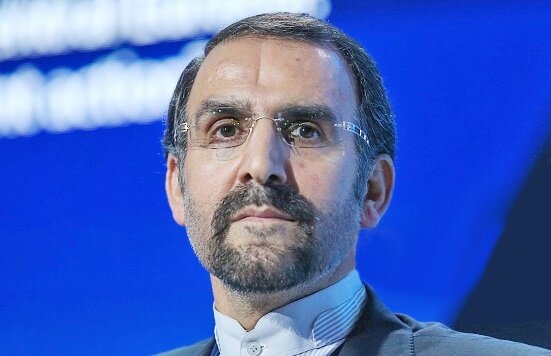Russia considers U.S. attempts to extend Iran’s arms embargo ‘totally unacceptable’: ex-diplomat

TEHRAN - Mehdi Sanaei, Iran’s former ambassador to Russia, has said that Russia considers the United States’ attempt to extend arms embargo on Iran “totally unacceptable”.
“Russia has already opposed the United States’ action and Russian Foreign Minister [Sergey Lavrov] has written a letter to the United Nations’ Secretary General [Antonio Guterres] in this respect. This issue is important for the Russians. Russia seeks to preserve the JCPOA [the 2015 nuclear deal] and has always supported keeping the deal. It [Russia] has condemned the United States’ unilateral action in quitting the JCPOA and imposing sanctions against Iran. So, I think from Russia’s viewpoint, the United States’ action in extending arms embargo on Iran is totally unacceptable,” he told the Hamshahri newspaper in an interview published on Sunday.
Noting that Iran’s relations with Russia is friendly and based on mutual trust, the former diplomat said that Moscow is expected to prevent extension of arms embargo on Iran.
Elsewhere, Sanaei said that extension of the embargos will be synonymous with the death of the 2015 nuclear deal, known as the JCPOA.
Lavrov has called the United States’ attempts to impose a permanent arms embargo against Iran “ridiculous” and “irresponsible”.
In a letter to Guterres and the Security Council circulated on June 8, Lavrov accused the Trump administration of unleashing a politically motivated campaign against Iran and called for “universal condemnation” of the U.S. attempts, AP reported.
The Russian foreign minister said the United States withdrew from the 2015 nuclear agreement between Iran and six major powers and now has no legal right to try to use the UN resolution endorsing the deal to indefinitely continue the arms embargo, which is set to expire on Oct. 18.
He said statements by U.S. State Department officials that the Trump administration doesn’t plan to resume its commitments under the nuclear deal but plans to invoke rights allegedly deriving from the resolution endorsing it are “ridiculous and irresponsible.”
Lavrov’s letter went further in explaining Moscow’s strong opposition to an indefinite arms embargo and U.S. use of the “snap back” provision.
“We are proceeding on the basis that the United Nations should not become hostage to the political situation in the United States, which has decided to withdraw from the plan,” he said. “There are no valid grounds for raising in the Security Council the issue of an arms embargo against Iran.”
Lavrov said the nuclear deal and the Security Council resolution “form a single whole” and can’t be considered separately. And under Article 25 of the UN Charter, “the United States side is obliged to carry out the decisions of the Security Council, rather than undermine them through its unlawful actions,” he said.
The chief diplomat said international courts have held “that a party which disowns or does not fulfill its own obligations cannot be recognized as retaining the rights which it claims to derive from a relationship.”
The United States, having violated the Security Council resolution and declined to implement the 2015 nuclear agreement has therefore “forfeited the possibility” of using the “snap back” provisions, the Russian chief diplomat pointed out.
Lavrov called on the U.S. to stop undermining the nuclear agreement and the UN resolution.
He said Russia and “other responsible members of the international community will continue to make every effort” to preserve the nuclear deal.
“The United States must recognize that there are neither legal nor other grounds for its policy of using Security Council mandates to pursue its own selfish interests,” Lavrov said.
‘Russia proposed to sell S-400 missile system to Iran but Tehran did not agree’
Sanaei also said martyr General Qassem Soleimani “convinced” Russian President Vladimir Putin to enter Syria in the fight against terrorists and foreign-backed militants.
The former ambassador also said that the Russian side “proposed” to sell S-400 missile systems instead of S-300 to Iran but officials in Tehran did not agree due to certain reasons.
NA/PA
